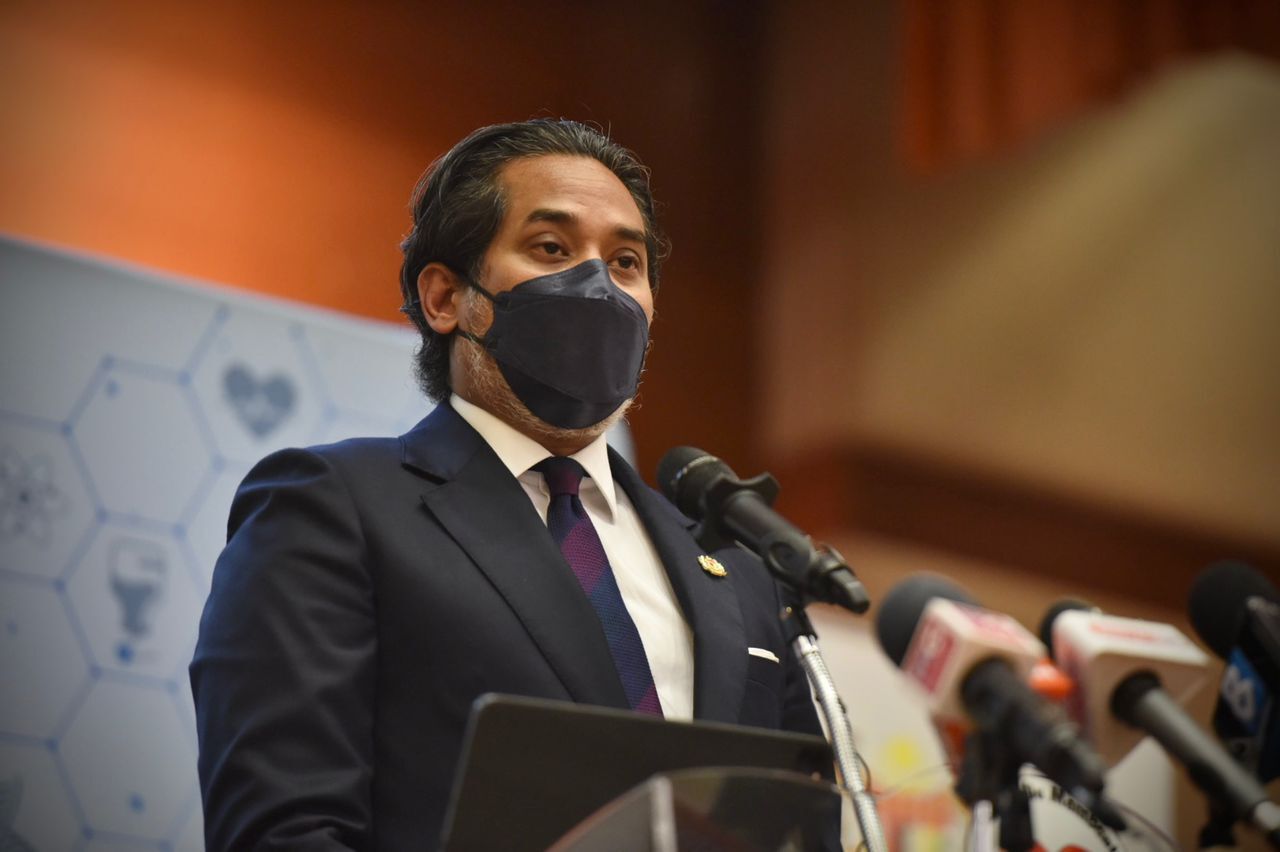KUALA LUMPUR, Sept 24 — Khairy Jamaluddin today defended Malaysia’s Covid-19 vaccine booster programme, amid global concerns on vaccine inequity as rich countries roll out third doses while millions haven’t received their first.
The health minister pointed out that Malaysia does not waste coronavirus vaccines, unlike developed countries that have a surplus stock of doses, resulting in wastage.
“There is no wastage of vaccines in Malaysia compared to developed countries, where we hear news of vaccines that are being wasted that are not used past its expiry date,” Khairy said in a press conference today, when CodeBlue asked if Malaysia was now part of the global vaccine inequity problem with its booster programme.
“All vaccines here are being used and we don’t hoard any vaccines, beyond what we need.”
The World Health Organization (WHO) has extended its plea for a global moratorium on coronavirus booster shots until at least year-end, pointing out that not a single low-income country has managed to vaccinate even 10 per cent of their population. Malaysia is classified by the World Bank as an upper middle income country.
Khairy stressed that Malaysia’s planned rollout of third doses and booster shots is extremely targeted at specific groups, like people with weak immune systems, not for the general population.
“In Malaysia, we’re using whatever stock we have. But in case we do not require the supplies to be delivered, we have made a decision to say that we can defer our delivery, so that vaccine manufacturers who are contracted to us, can send to other countries first. That’s a decision that we’ve made,” he said.
“I think it would not be fair to announce boosters for everyone right now when there are countries that have not even given their first dose.
“So our booster and third dose programme now — it’s very targeted to those whose immune system may not have gotten the right, enough response from two doses. I think our targeted booster and third dose programme is fair. But I think the issue here is those countries who have vaccines that have gone past expiry date. I think that is very, very wrong.”
An analysis by science information and analytics company Airfinity revealed that G7 countries and the European Union (EU) are expected to waste 241 million Covid-19 vaccine doses, after stocking one billion more doses than what they need by the end of this year.
According to Airfinity’s analysis, these available vaccines, vaccines that have been purchased, and COVAX deliveries are sufficient to inoculate 70 per cent of the population of low-income countries by the second quarter of 2022.
Khairy also highlighted Malaysia’s participation in the global COVAX Facility that is co-led by the WHO to expand access of Covid-19 vaccines to all countries.
“First of all, we are part of global solidarity. Although we are a middle income country, we participated in COVAX very early on, and we are a full paying member of COVAX,” said the health minister, adding that Malaysia previously donated Covid-19 vaccines to Bosnia.
At the same time, Khairy criticised travel rules in countries that discriminate against travellers inoculated with certain Covid-19 vaccines.
“I note there are some countries that set that only individuals who receive certain vaccines will be given exemption from performing Covid-19 tests before departing, undergo quarantine upon arrival in the concerned country, and so on.
“Things like this should not happen because it is important for us to understand that the vaccine protects an individual from the risk of getting a serious infection and reduces the symptoms of the disease.”
However, Khairy noted that one’s immunity will be affected by the emergence of highly transmissible Covid-19 variants.
So he said that flexibility provided to travellers should be formulated on the basis of disease control and prevention, as well as public health measures in the country and not based on the type of vaccine.
“This will defeat the purpose of having the vaccine and administering them to the population. Discriminating the type of vaccine will only discourage innovation in manufacturing vaccines.”
It is to be noted that England, despite allowing entry to travellers from Malaysia from October 4, mandates a 10-day quarantine upon arrival, a pre-departure Covid-19 test, and another test on the eighth day after arrival for unvaccinated people or those who were not vaccinated with Western vaccines Pfizer-BioNTech, AstraZeneca-Oxford, Moderna, or Johnson & Johnson.
Nearly half of fully vaccinated people in Malaysia received Sinovac. A minority were also inoculated with CanSino, another Chinese vaccine. Sinovac has been recognised by the World Health Organization (WHO).








